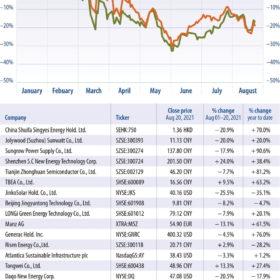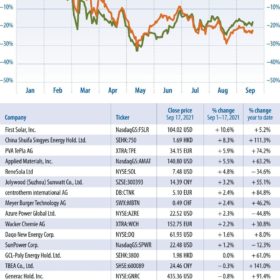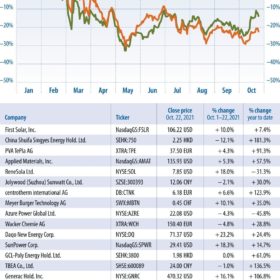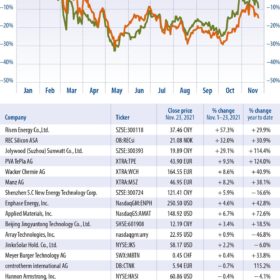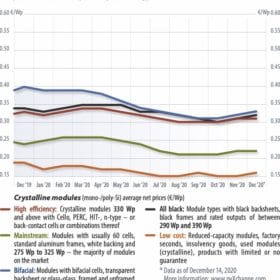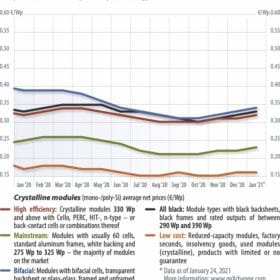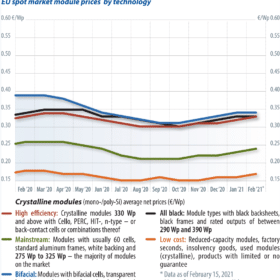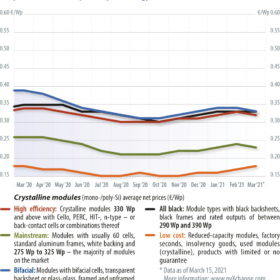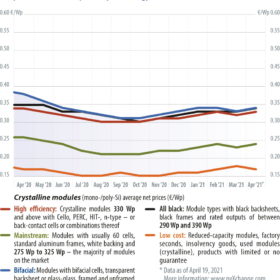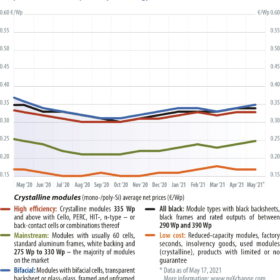Supply chain shake-up
Solar stocks have underperformed in the broader market in August, writes Jesse Pichel of ROTH Capital Partners. Project delays could be on the horizon as more module imports are held up at customs, and the supply chain will start to see impacts as suppliers look for options to source polysilicon outside of China.
Reduced risk for resi PV
The Invesco Solar ETF, an exchange-traded fund that tracks the MAC Global Solar Energy Index, witnessed a slight downturn in September, while performing marginally better relative to the S&P 500 and Dow Jones Industrial Average, writes Jesse Pichel of ROTH Capital Partners.
Delayed reaction
As of Oct. 22, the overall market posted strong performance, with the Invesco Solar ETF leading the pack.
Two sides to import tariffs
Solar stocks underperformed the broader markets in November, writes Jesse Pichel of ROTH Capital Partners. This is in large part thanks to uncertainty coming from the United States, where the Court of International Trade reinstated an exemption from import tariffs for bifacial modules – a decision that will likely see an appeal.
2020 – Taking the time to say ‘thanks’…
Alongside all of the problems, 2020 has brought us a few promising initiatives and developments. Martin Schachinger of pvXchange.com looks back over the second half of the year and offers a quick look at what could be in store for 2021.
A wrench in the works
Looking back at the past year, the renewables sector has seen two extremes. In Germany, disparities were triggered in part by the recently passed amendment to the Renewable Energy Sources Act (EEG). For solar PV in particular, the pendulum will swing in favor of installers of small systems in the near term, writes Martin Schachinger of pvXchange. For installations up to 30 kWp, the new law has cleared market barriers.
Why human rights protection is pushing up module prices
The solar industry typically sees itself as being supportive of the environment, humanity, and human rights. Even large Chinese PV manufacturers publish statements to this effect, particularly if they are listed on Western stock exchanges. But what do human rights have to do with the solar industry? What connections exist, asks Martin Schachinger of pvXchange, and how are they important to the future success of the European PV market?
The ideal format
The speed at which manufacturers are introducing changes from one product generation to the next is accelerating – currently, formats are scarcely available for more than a few months before another revised product is launched. But occasionally new module dimensions also bring new problems, be it in handling, plant design, or logistics. Ever-shorter product cycles and hastily launched record-breaking modules with capacities of 500 W, 600 W, or even 700 W are not always welcomed with open arms – especially by those who have to work with them, writes Martin Schachinger of pvXchange.com.
Is sustainable market development possible?
Module manufacturers have once again adjusted their prices upwards. This is already the third or fourth price increase in the last six months, and there is no end in sight, writes Martin Schachinger of pvXchange. But why is it so hard to achieve long-term, sustainable development in the global solar market, at least on the part of manufacturers? Few other industries are so turbulent, with constant swings between excess supply and bottlenecks, between price collapses and price rises – and always to the breaking point of the market. Yet again, planning security is out the window.
Nuclear – no thanks!
The somewhat timeworn slogan from Germany in the 1970s and 1980s, “Atomkraft – Nein Danke,” is well known, even outside the country. But you hardly ever see or hear it anymore – least of all after the German government decided to phase out nuclear power in 2012, in the wake of the Fukushima disaster. This incident brought the global expansion of nuclear power to a virtual standstill, writes Martin Schachinger of pvXchange. Yet, despite all the latest developments and talk about climate protection in Germany and abroad, there is reason to be concerned that the use of nuclear power as a low-carbon energy source may not be over yet.
